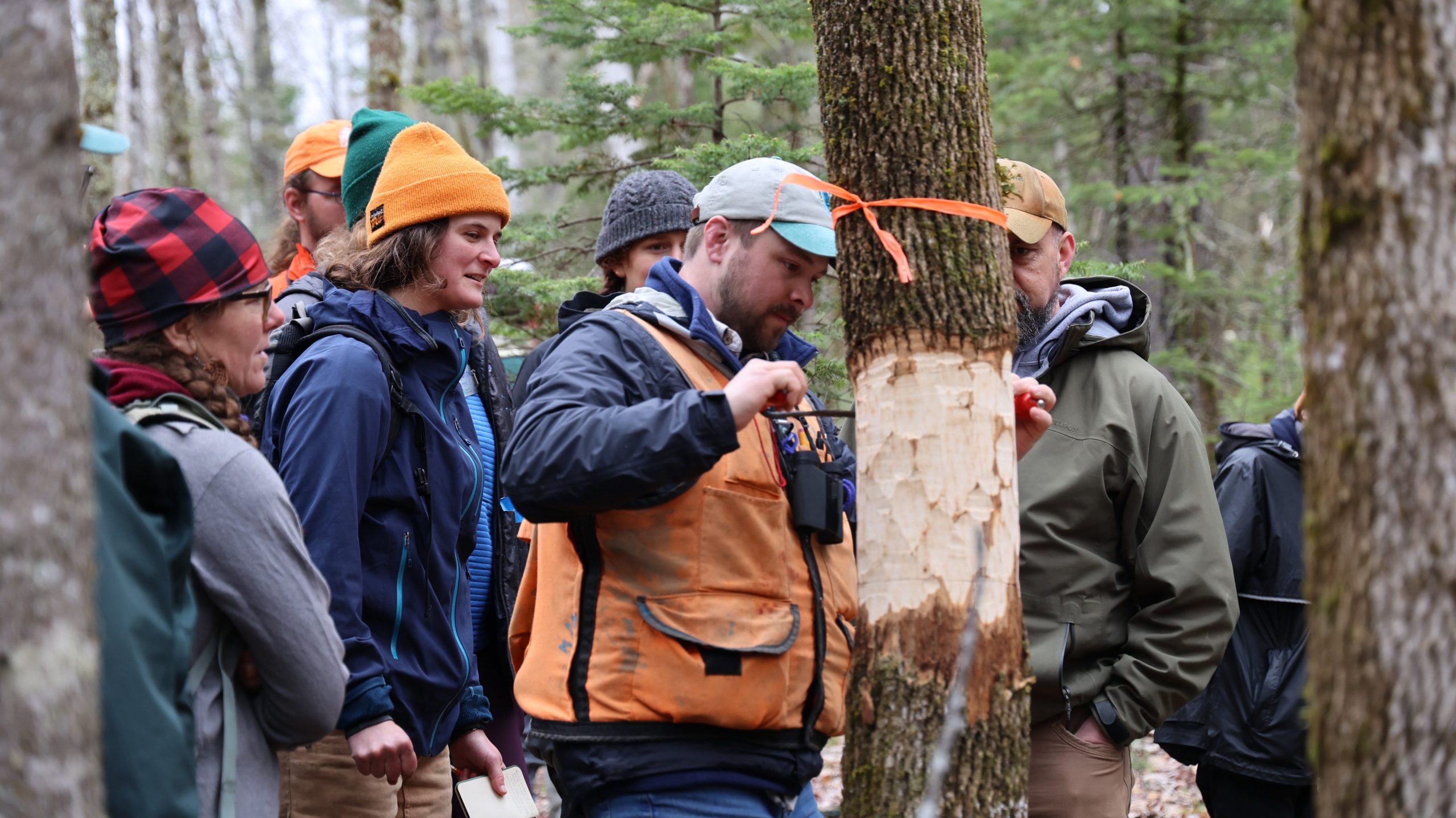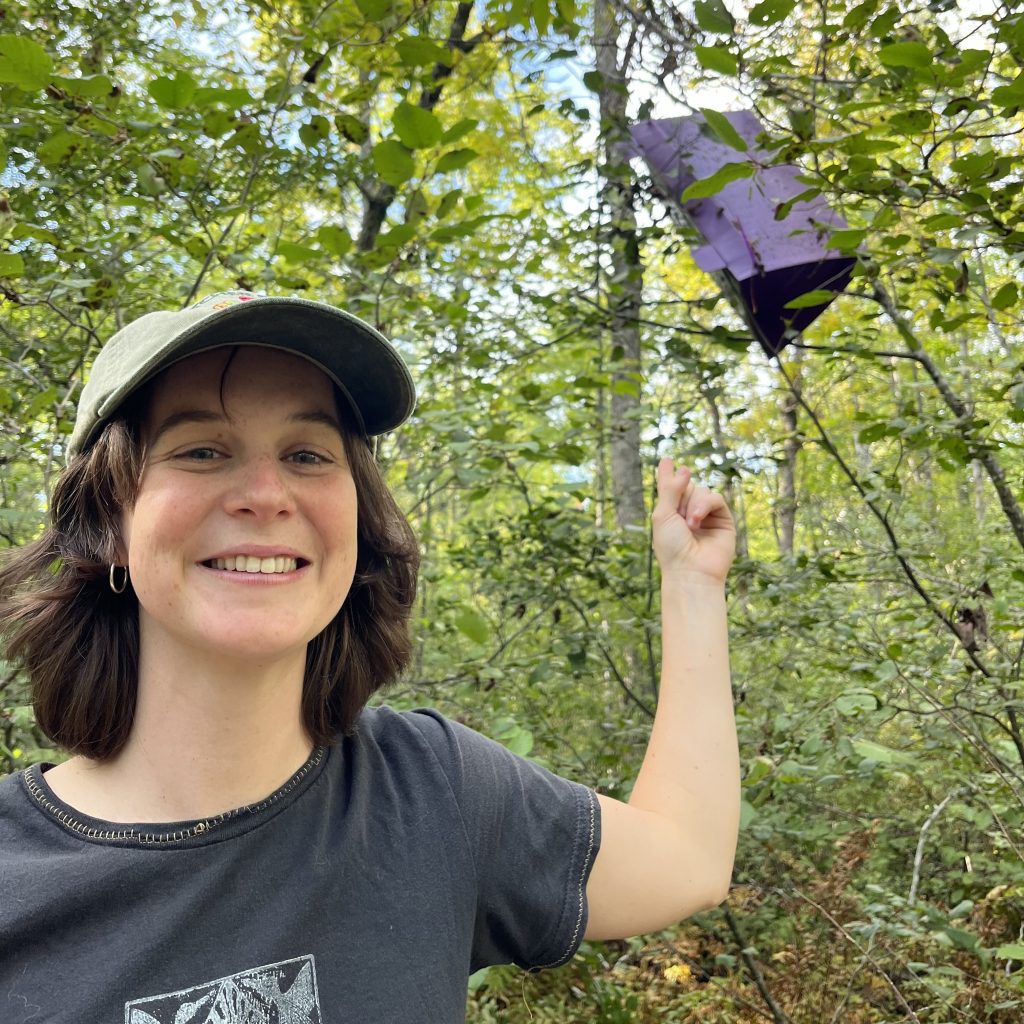Research
Members of the Ash Protection Collaboration of Waponahkik engage in ongoing research in conversation with Wabanaki communities and in service to their priorities. See below for some of our current research projects, past publications, and former graduate work.

Tyler Everett, PhD Candidate, School of Forest Resources
Email: tyler.everett@maine.edu

Tyler’s current research is interdisciplinary and cross cultural. Utilizing the existing partnerships and collaborations established by the brown ash task force, Tyler’s project will optimize outreach efforts to inform research that will establish study sites for testing adaptive management strategies for brown ash wetland forests that aim to be resilient in the aftermath of EAB. The results of these management trials will help establish guidelines and recommendations for how to best increase the resiliency of the region’s ash resource in the face of this complex forest health issue. Outreach is underway to both Tribal Nation Partners as well as landowners and land managers from across the Dawn Land.
- Tribal outreach: Working directly with appointed natural resource staff for participating Tribal Nations, we are coordinating public outreach in Tribal Nation communities, where we will present community members with possible adaptive management options, outline any existing knowledge gaps, and explain the uncertainty and probable outcomes for each option. Following the outreach, an opportunity to participate in a focus group discussion will be offered to interested community members. Analysis of these focus group sessions will inform the experimental design of the project’s management trials. Ensuring that these trials will align with the priorities of our Tribal partners.
- Landowner and Land Manager outreach: Working cooperatively with state agency partners in Maine and other voluntary organizations we have dispersed a survey to landowners, loggers, and foresters throughout the state that will allow us insight into their perceptions on the EAB forest health issue. This newfound understanding will be used to produce outreach materials for these groups that aim to address misconceptions and knowledge gaps regarding ash best management practices.
- Management Trials: As previously noted, the management trials will be based on the priorities identified by our Tribal partners. Sites will be monitored pre- and post-treatment for EAB impacts and infestation levels, as well as patterns of forest regeneration and development. Leveraging these metrics in an analysis will allow us to analyze the overall efficacy of the adaptive management strategy. To deliver the research results we will increase the decision-making capacity of Tribal Nations, private landowners, foresters, and loggers, through management guides and informational sheets tailored to their specific needs.
Ella McDonald, PhD Student, School of Forest Resources
Email: ella.mcdonald@maine.edu

Ella McDonald is focused on supporting EAB adaptation projects led by Wabanaki community members. Her research builds understanding around three key bottlenecks in the process of Wabanaki basketmaking: cultural access to private land, locally appropriate processing technologies, and long-term ash material storage. Ella uses qualitative methodologies including workshops, interviews, participant observation and sharing circles to work through community governance questions.
Ashlynn Amick, Master’s Student, School of Forest Resources
Email: ashlynn.amick@maine.edu

Ashlynn is involved in long-term planning for the addition of a resistance breeding program to APCAW and is examining the potential utility of pollen grain collections for long-term storage and viability in reducing the impact of population bottleneck due to EAB.
Dissertations
- Suzanne Greenlaw. Mobilizing Indigenous Research Methodologies and Wabanaki Knowledge in Biophysical Research to Restore Wabanaki Sweetgrass Harvesting in Acadia National Park and Identify Basket Quality Black Ash Habitat for Emerald Ash Borer (Agrilus planipennis) Preparedness. December, 2023.
- Emily Francis. Understanding Private Landowners Involvement, Knowledge Sharing, and Social Networks in Conservation of Brown Ash in the Face of Emerald Ash Borer. August, 2024.
Masters’ Theses
- Kara Kristine Lorion Costanza: Growth Response of Fraxinus nigra Marsh (Lamiales: Oleaceae) Used to Predict High-Quality Sites in Maine and Northern New York: An Approach to Prioritizing Preparedness and Management of Agrilus planipennis Fairmaire (Coleoptera: Buprestidae). December, 2015.
- Tyler Everett: EAB RESPONSE: An Ash Resource Inventory Field Manual for Wabanaki Tribes. July, 2019.
- John Furniss: Remote Sensing Identification of Black Ash (Fraxinus Nigra) in Maine Via Hyper- and Multi-Spectral Imagery. August, 2021.
- Ella McDonald: Sharing our Responsibilities to Care for Brown Ash Forests: An Evaluation of Learning and Collective Action through the Ash Protection Collaboration Across Waponahkik Program. August, 2025.
Constanza, K.K.L., W.H. Livingston, D.M. Kashian, R.A. Slesak, J.C. Tardiff, J.P. Dech, A.K. Diamond, et al. 2017. The precarious state of a cultural keystone species: Tribal and biological assessments of the role and future of black ash. Journal of Forestry. 115: 435-446.
Daigle, J. J., Straub, C. L., Leahy, J. E., De Urioste-Stone, S. M., Ranco, D. J., & Siegert, N. W. (2019). How campers’ beliefs about forest pests affect firewood transport behavior: An application of involvement theory. Forest Science, 65(3), 363-372.
McGreavy, B., Ranco, D., Daigle, J., Greenlaw, S., Altvater, N., Quiring, T., … & Hart, D. (2021). Science in Indigenous homelands: addressing power and justice in sustainability science from/with/in the Penobscot River. Sustainability Science, 16, 937-947.
Ranco D, Arnett A, Latty E, Remsburg A, Dunckel K, Quigley E, Lilieholm R, Daigle J, Livingston B, Neptune J, Secord T. 2012. Two Maine forest pests: a comparison of approaches to understanding threats to hemlock and ash trees in Maine. Maine Policy Review 21:76-89.
